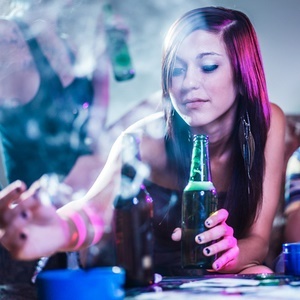
A staggering 60% of South African teenagers have been drunk, and according to a 2010 report, and 12% of South African learners have used at least one illegal drug such as heroin, mandrax or cocaine.
And while substance abuse is a huge problem worldwide, it is especially problematic within the South African context as it is directly linked to crime, violence and risky sexual behaviour which feeds into the HIV problem, according to research.
Now, a new report suggested that a 12-step programme similar to Alcoholics Anonymous can effectively treat teens and young adults for drug and alcohol abuse.
The study was published online recently in the journal Addiction.
More successful outcomes
The study at Massachusetts General Hospital's Center for Addiction Medicine in Boston lasted nine months, and included 59 people aged 14 to 21.
The researchers found that combining the 12-step approach with standard care led to more successful outcomes than current standard methods alone.
While a well-designed drug and alcohol abuse programme can benefit all adolescents, "we showed that adding a 12-step component to standard cognitive-behavioural and motivational strategies produced significantly greater reductions in substance-related consequences during and in the months following treatment," said study leader John Kelly. He directs the Recovery Research Institute at the hospital.
"It also produced higher rates of 12-step meeting participation, which was associated with longer periods of continuous abstinence," Kelly added in a hospital news release.
Group therapy sessions included talking about changing social networks and reducing relapse risk, the study authors noted. Two sessions also featured young members of a 12-step programme who shared their experiences with addiction and recovery.
Some type of extended care needed
"That peer-to-peer aspect was probably the most powerful in disabusing young people of the negative stereotypes they often hold about 12-step members and about recovery more broadly," Kelly said.
"Similar-aged peers who are in recovery seemed much better able to capture the attention of participants than clinic staff," he explained.
Greater participation in 12-step programmes didn't last long term, however. The researchers suggested that this finding shows a need for some type of extended care for teens recovering from alcohol or drug abuse.
"We want to replicate and extend the testing of this treatment even further to determine the benefits of longer-term care," Kelly said.
"We know that the transition to adulthood is fraught with relapse risks for young people recovering from a substance-use disorder, so some kind of regular but brief 'clinical recovery check-up,' like what is common for other chronic conditions like diabetes or hypertension, could improve outcomes," he suggested.
How to help your child
While there is no simple way to help your teenager overcome addiction, research suggests that a nurturing environment created by the parents, along with rules and discipline, may curb the problem.
Image supplied by iStock




 Publications
Publications
 Partners
Partners










